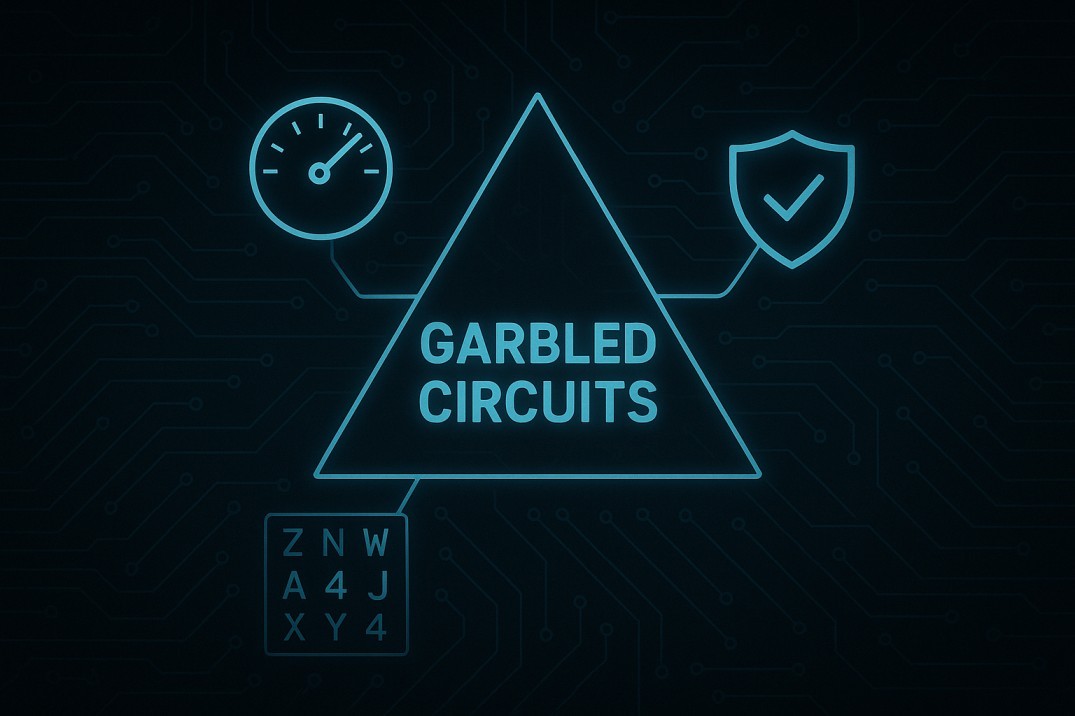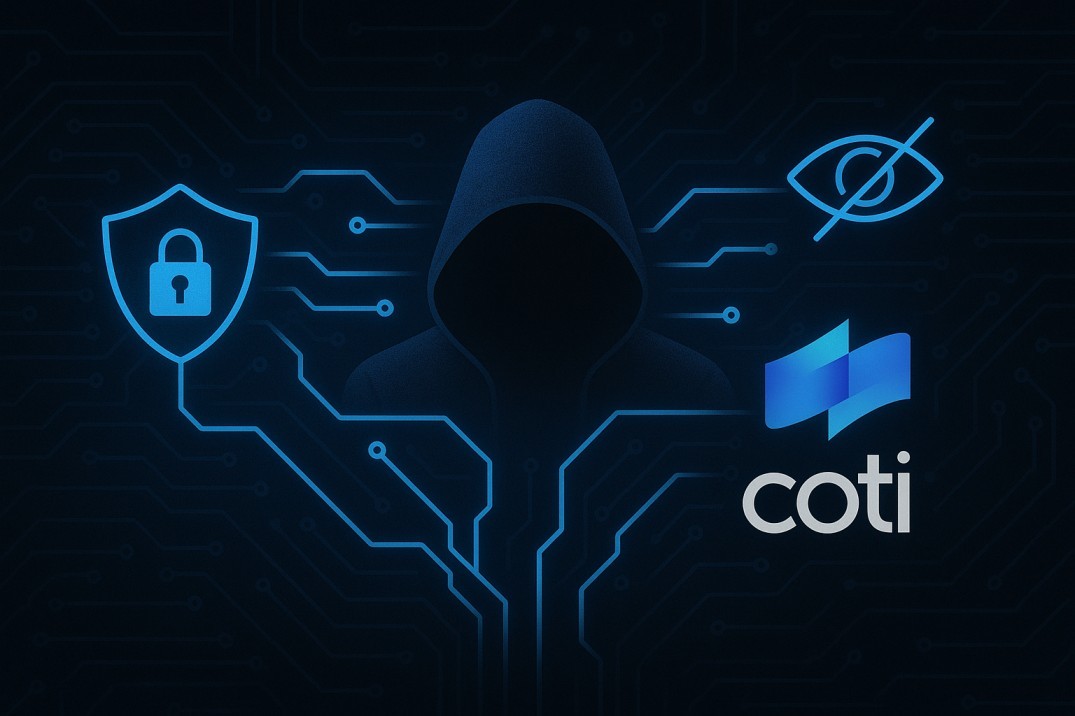TL;DR
- The crypto industry faces a long-standing "privacy trilemma": you can have speed, compliance, or anonymity - but rarely all three.
- COTI's Garbled Circuits-based infrastructure breaks that tradeoff, enabling fast, compliant, and private blockchain computation.
- Benchmark tests show COTI's tech performs thousands of times faster than leading alternatives like Fully Homomorphic Encryption (FHE).
- Its scalable and resource-efficient design opens the door for confidential computing in both retail and institutional environments.
- COTI's model may redefine what "privacy-ready" means for Web3.
For years, blockchain's biggest challenge was scalability. Then came the next one: privacy. Today, both intersect in a new frontier - compliance. Governments want oversight. Users demand privacy. And developers want speed.
The problem? These three don't easily coexist. The "privacy trilemma" - balancing speed, compliance, and anonymity - has become crypto's toughest puzzle. Most solutions end up compromising on at least one corner. Fully Homomorphic Encryption (FHE) preserves data privacy but is painfully slow. Zero-knowledge systems can be fast but often lack compliance-ready transparency. And traditional blockchains, built for openness, expose too much.
COTI, however, is rewriting the equation. By embedding Garbled Circuits, a cryptographic breakthrough that enables private computation without slowing execution, COTI has built an infrastructure where privacy doesn't mean performance loss - and compliance doesn't mean surveillance.
This is the foundation of COTI V2, the world's first Layer 2 dedicated to privacy-preserving computation for Ethereum and beyond.
Why Privacy Became Non-Negotiable
In 2025, privacy isn't just a user preference - it's a necessity. Financial institutions face growing pressure from both regulators and customers to ensure that transactions remain private but auditable. Ordinary users, too, are becoming aware that their on-chain data - wallet addresses, trades, interactions - form a permanent digital fingerprint.
A report by the European Central Bank notes that "privacy remains a top priority in digital euro design," echoing similar sentiment from Israel's central bank, which collaborated with COTI in early pilot research on privacy-preserving finance. Even decentralized apps (dApps) are under pressure. As tokenized assets and real-world finance converge, data privacy isn't optional - it's a compliance requirement.
Ethereum, for all its strengths, still struggles here. Every transaction, interaction, and contract remains publicly traceable. Despite emerging initiatives like Ethereum's Privacy Stewards (PSE) program - which aims to integrate privacy "at every layer of the stack" - true privacy-native computation remains years away.
COTI, on the other hand, already runs it today.
The Privacy Trilemma Explained
To understand why COTI's approach stands out, it helps to define the trilemma itself:
- Speed: Users and developers expect real-time performance.
- Compliance: Regulators require traceability, auditability, and lawful access.
- Anonymity: Individuals and institutions demand protection of sensitive data.
Traditional blockchains can achieve one or two - but not all three simultaneously.
- Take Bitcoin: fast and transparent, but far from private.
- Take Monero: private and secure, but not compliant or widely adopted by institutions.
- Take Ethereum: programmable and open, but its transparency undermines financial confidentiality.
COTI's model introduces a selective disclosure framework, where data can remain private by default yet be revealed to authorized parties under verifiable conditions. It's privacy you can trust - and audit.
COTI's Secret Weapon: Garbled Circuits

The real innovation powering COTI's privacy layer lies in its adoption of Garbled Circuits (GC) - a cryptographic protocol originally proposed in the 1980s but only recently optimized for practical blockchain use.
In simple terms, GC allows two parties to compute a function together without revealing their individual inputs. It's like calculating a shared result from two locked boxes - without opening either. COTI's implementation of GC allows complex smart contract logic to execute privately, while remaining verifiable on-chain. This is the foundation of Decentralized Confidential Computing (DeCC) - a new standard of privacy-first computation.
Benchmarking the Future: How Fast Is COTI Really?
In 2024, the COTI team, in collaboration with Soda Labs, ran a comprehensive benchmarking exercise comparing GC against FHE, one of the most respected approaches in privacy tech.
The results were astonishing. According to the study published by COTI Network:
That's not a small improvement; it's a generational leap. Where FHE struggles with real-time use cases due to heavy computation loads, COTI's Garbled Circuits can power private DeFi apps, confidential lending protocols, and identity-proof systems - all at production scale.
The study also found:
- Scalability: COTI's system maintained performance across increasing input sizes, an area where most privacy systems degrade.
- Efficiency: Resource usage was reduced by nearly 250x compared to FHE, making it viable for a wider range of devices.
As Soda Labs summarized in their joint analysis, this "marks a fundamental shift from theory to practice for confidential blockchain computing."
The Compliance Angle: Privacy Without Obscurity

One of COTI's most overlooked achievements is how it fuses privacy with compliance - two forces traditionally at odds. Instead of hiding everything, COTI's model employs selective disclosure, allowing regulated entities to comply with AML or tax rules while maintaining user-level data confidentiality.
This hybrid design positions COTI as a realistic bridge between DeFi and TradFi. European and Israeli banks - both exploring digital currency pilots - have taken interest in these architectures because they align with institutional-grade privacy standards.
In a recent interview with Decrypt, CEO Shahaf Bar-Geffen emphasized:
That balance between transparency and protection is what makes COTI's compliance stance unique - and scalable.
Why Speed Still Matters
In crypto, privacy solutions often come at the expense of usability. If transactions take seconds or minutes to process, adoption suffers.
COTI's system eliminates that tradeoff. By processing encrypted operations in microseconds, it ensures the same snappy experience users expect from non-private chains. This performance edge is crucial for high-frequency DeFi platforms, payment systems, and real-time analytics - all of which need both privacy and speed to operate efficiently.
As COTI summarized during the benchmarking phase:
Beyond Technology: COTI's Strategic Position
While privacy tech has been a long-discussed frontier, few projects have managed to operationalize it. COTI has not only built a robust privacy layer but also launched real-world integrations - from DeFi apps like Carbon DeFi and PriveX to partnerships with enterprise-level institutions.
Its inclusion in European and Israeli financial pilots signals that COTI is being taken seriously by traditional finance - a space often wary of "privacy coins." Unlike projects focused solely on anonymity, COTI's emphasis on compliance-ready privacy makes it fit for the institutional layer of Web3. This strategic positioning could see COTI become the underlying infrastructure for confidential finance, compliant stablecoins, and cross-border settlement systems - all powered by its Garbled Circuits engine.
Privacy as Infrastructure
In 2017, privacy was a niche. In 2025, it's an expectation. As the crypto industry matures, users, developers, and regulators all converge on one truth - privacy must be native, scalable, and compliant.
COTI doesn't just check those boxes; it's redefining them. Its privacy layer, benchmarked to perform at production scale, could very well set the standard for confidential computation across all of Web3. By balancing the trilemma - speed, compliance, and anonymity - COTI demonstrates that privacy can be both powerful and practical. And that might be the missing piece crypto has been searching for.
Final Thoughts
The privacy trilemma has haunted blockchain since its inception. But what if it was never a trilemma - just an engineering problem waiting for the right solution?
COTI's Garbled Circuits architecture proves that privacy doesn't have to slow you down, compliance doesn't have to compromise confidentiality, and anonymity doesn't have to mean opacity. It's a new kind of blockchain logic - one that understands the world needs both freedom and order.
ALSO READ: Stay.Coti — Build Private dApps Without Writing a Single Line of Code











